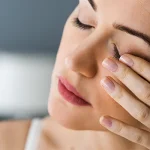Home ⟩ high-eye-pressure
Also known as ocular hypertension, high eye pressure refers to any situation in which the pressure inside the eye is higher than usual, i.e., greater than 10 to 21 mm Hg. It is a situation in which the intraocular pressure
High eye pressure, also known as increased intraocular pressure, occurs when the fluid inside the eye (aqueous humour) does not drain properly, causing a buildup of pressure. If left untreated, elevated eye pressure can lead to conditions such as glaucoma,
Find a doctor tool assists you in
choosing from our diverse pool of health specialists. Discover better health & wellness by using our doctor ratings & reviews to make your choice
Find an eye specialist
From locating one of our centres across India to booking an appointment, we are just a click away!
Locate a Centre
The SMILE laser eye surgery is a short form for Small Incision Lenticular Extraction. It is a highly advanced technology.
See Our All Specialities
Centre For Sight . 2024
